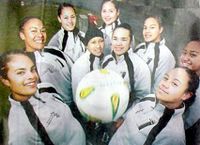
The age of rationality, framentation and measurement.
Reminds me of an ERO team reviewing a school for their 'targets' and in the process missing everything else!

It is time we appreciated that the 'machine age' is over. The idea that ‘man’ can control and dominate everything has had terrible environmental and social consequences.
It is far better to see the world, and all our organizations, as living systems and to see our role as part of a range of integrated systems than underpin all life. This ‘systems thinking’ is the new 'world view' that we all need to learn to appreciate. Strangely enough the concept has direct links with earlier indigenous wisdom that everything is interrelated, often in ways we can’t at first recognize.
At the human level we all have a need for relationships and meaningful lives, and we connect with others who share similar ideas. These ideas are the basis of community or culture. Cultures ( including schools) are based on shared understandings and beliefs which, act as an 'attractor' to others, as a self reference to make decisions, and provide the motivation to network with others who share similar beliefs.
Change occurs in living systems( and organisations that understand the concept) in response to events that disturb them, causing them to make changes to regain equilibrium. In a school this might occur just because someone notices a new way of doing things and the idea is picked up and spread to the others with infectious enthusiasm. The community accepts ideas if they fit in with their identity – if not they resist, reject or sabotage them.
Schools as organic systems, or communities, continually evolve and change. They need new forms of leadership able to tap into, and share, the wisdom of all who belong. Rather than being run by, 'headmasters', bells, and fragmented subjects, living schools create the conditions for students to develop their talents. They do this by personalizing learning, providing rich integrated challenges, and assessing students by what they can do, perform, or demonstrate.
This is new way of organizational living and working. It is about learning as you go along, as things unfold, valuing the unexpected and enjoying the feeling that you might not know what will happen.
This is hard stuff for the analytic control freaks that currently determine 'our' educational outcomes. We can no longer hide behind their imposed plans, measures, targets, and outputs forever; we have to trust the process itself. Life is just too unpredictable to be so compliant.
This is about education as creativity; teachers as artists; students as explorers; it is about working in harmony; about valuing differences; it is about continual change; it is about life.
And it is about time.
If you are interested read the writings of Margaret Wheatley.
For ideas about how to develop Schools as Learning Communities visit our site.















